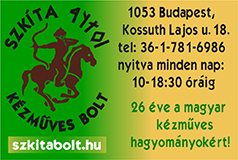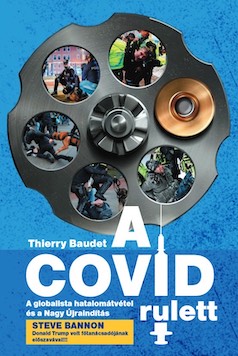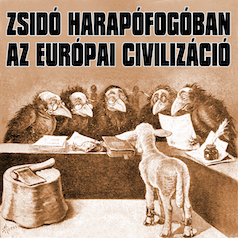Jobbik, the Movement for a Better Hungary, today published an English language version of their general election manifesto: “Radical Change.”
Capitalizing on being the first party to publish an election manifesto for the national parliamentary elections (whose first round is set for April the 11th), and the only party to develop a comprehensive program designed to alleviate and rectify the issues and crises under which the Hungarian people now labour, the release of “Radical Change – 2010” will only cement Jobbik’s already established reputation as being the most open and transparent political party in Hungarian politics today.
In contrast the Liberal Fidesz party, a little over a month before the polls open, are yet to even publish a manifesto in their own language, let alone any other. How they intend to secure the approval of the Hungarian people, and receive the confidence of the international community, with this approach, is anybody’s guess.
In fact it is now being reported, that on the few rare occasions when Fidesz politicians condescend to meeting the Hungarian electorate, the asking of questions is strictly forbidden. Indeed, how is a politician to answer questions about a party’s policies and solutions, when they in fact have none?
It is also revealing, of how Fidesz’s behaviour and approach is coming to resemble that of their supposed Socialist antagonists, whose own program is a confused document, which combines the twin MSZP traditions of avoiding the issues, and cynically-minded pretence.
Assurances of saving the Hungarian people from fears it has itself been deliberately generating, are twinned with an approach that seems more concerned with justifying its catastrophic mismanagement of the country’s affairs over the last eight year, than providing solutions to Hungary’s deep and abiding problems.
The final word on the Socialists’ program should go to their Prime Ministerial nominee, who says within its pages, that “Hungarian society is not in crisis.” We can think of no statement more brazenly demonstrating a total inability to grapple with reality.
Given the above, it is more vital than ever that the Hungarian voter be faced with a choice. They have such a choice, the better choice: Jobbik.
The Movement for a Better Hungary’s manifesto, is a document produced as a result of months of consultation with the Hungarian public, and the contributions of several hundred experts in their field. The array of subjects covered, is ample illustration of the range and extent of intervention Hungarian society requires, to bring it to a state of social-justice and national self-determination, in short: radical change.
The depth and extent of the nationwide response since the manifesto’s publication has been phenomenal. Local Jobbik campaign meetings now frequently witness attendance in the thousands. And Wednesday of this week saw all 176 of Jobbik's parliamentary candidates achieving the endorsement threshold to stand for election, again, before any other party. And so it is with pleasure and confidence that the Jobbik Foreign Affairs Committee now submits a verbatim version of the 24-page ‘shorter’ manifesto, in English, to international scrutiny.
The reasons for its release extend far beyond the wish to provide the global press, the curious and second and third generation Hungarians abroad, with unbiased and unfiltered access to information on the reality of what Jobbik wishes to achieve in Hungary. (As the Jobbik leader Gábor Vona has said, “Everyone is now able to read in black-and-white, what it is that Jobbik wants. What it stands for and what it believes in.”)
It is also a demonstration, yet again, in deeds rather than words, of our fundamental realization that the chief obstacle on the route back to prosperity for Hungary: is tackling corruption; and that the most effective way to tackle it, is to have an uncompromising commitment to transparency.
A copy of the English-language version of the Jobbik 2010 manifesto Radical Change, can be downloaded by clicking here.
See also:








